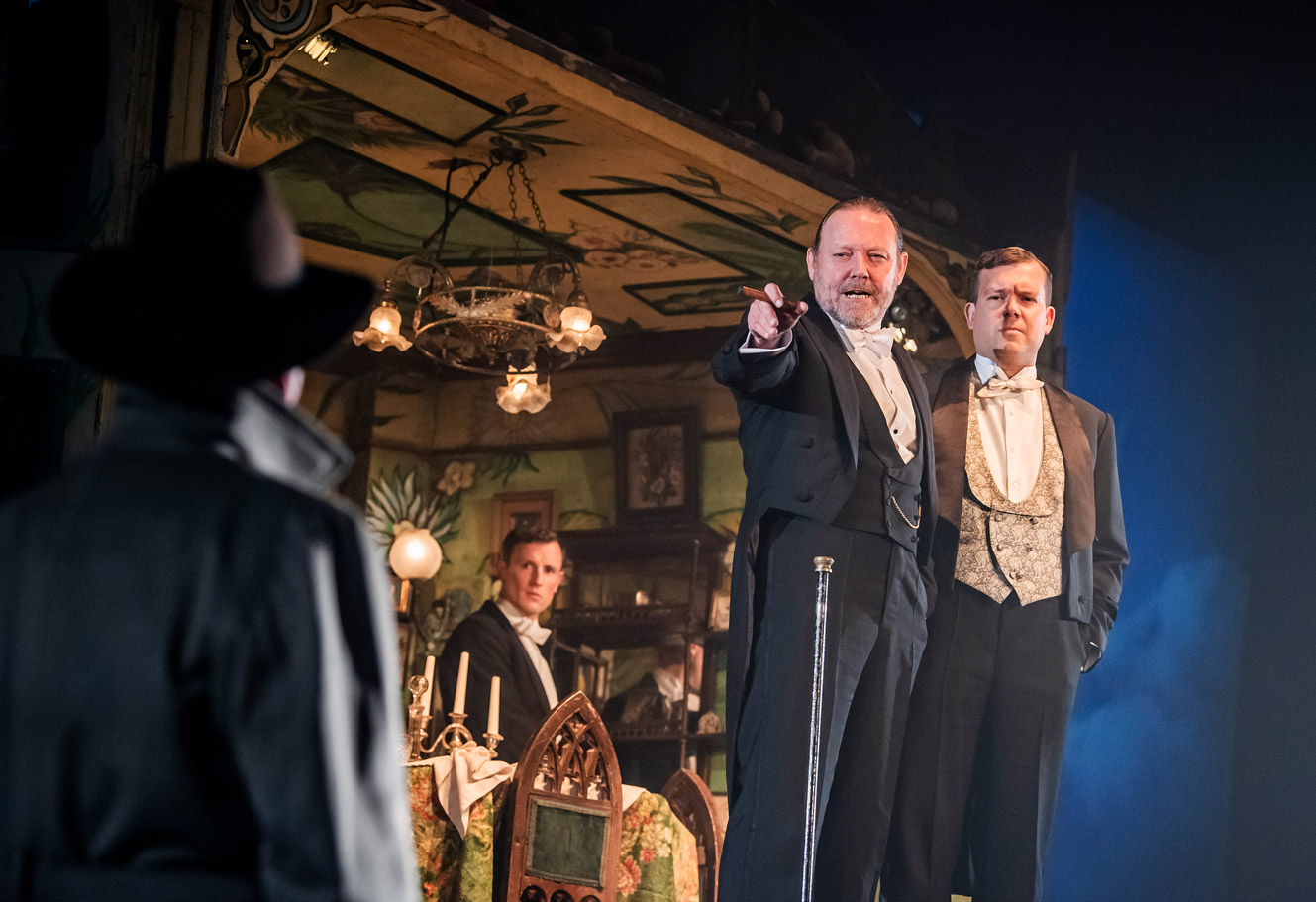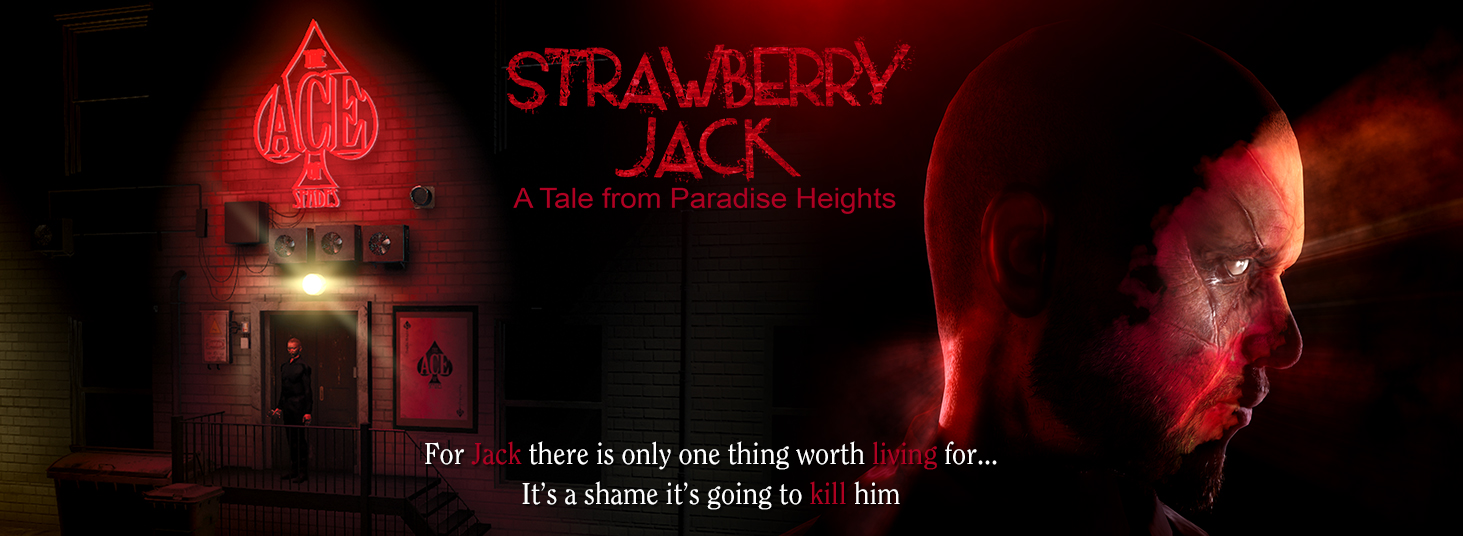- Premiere
- STAFF Pick
Meet the man behind the ‘Elephant Man’ at Blackpool Grand this October
6 min read
Share
Critically acclaimed new drama The Real and Imagined History of the Elephant Man is utterly compelling and completely unmissable live theatre at Blackpool Grand from Tuesday 17 to Saturday 21 October.
If you think you know the story of The Elephant Man – think again. Australian playwright Tom Wright’s celebrated production imagines an alternative…
Joseph Merrick is a man fighting for his right to be and to belong. Arriving from his East Midlands beginnings and thrust into a London thick with the grime of industrialisation, Joseph is an anomaly in a harsh and unforgiving world. But Merrick and the city are evolving into something new. Follow him through the workhouse, the freakshow and the hospital as he searches for acceptance in a society that just wants to stare at him.
This radical re-imagining, described as a ‘theatre-poem’, is presented by Nottingham Playhouse and directed by Stephen Bailey, winner of the Royal Theatrical Support Trust (RTST) Sir Peter Hall Directing Award 2022. The Real and Imagined History of the Elephant Man also features a talented cast composed entirely of disabled, deaf and/or neurodivergent actors, led by the exciting new actor Zak Ford-Williams (BBC1’s Better, A Christmas Carol, Wolfe) as Joseph Merrick.
Zak is an actor with Cerebral Palsy and likes to use his wheelchair and condition as devices to add character, depth and authenticity to his roles as recently seen in the critically acclaimed BBC drama Better where he played Owen – a young boy coming to terms with his disability. Zak was interviewed during the intensive rehearsal process by Tom Jamison for Able Magazine about taking on the challenging role of Joseph Merrick:
What’s it been like to rehearse and now to perform with an all-disabled cast?
“Great. Going to drama school, and in almost every other project I’ve been involved with, I’ve been the only disabled person. You do the things you have to do as a disabled person, to make everyone else comfortable with you. It’s been really nice not to have to do that and to be around more disabled people. And they’re such wonderful people and such staunch professionals, they’re brilliant!”
Would you suggest then that the process of rehearsals for this production hasn’t been so much adapted, as much as universal?
“Yes. Stephen Bailey (director) said, something that I really liked, relating to why he decided he wanted lots of disabled people, because otherwise we’d all have to have loads of conversations about what’s it like to feel different and what’s it like to be different. But we all know that. We all understand that as a baseline. We don’t have to have those sorts of imaginative journeys or conversations.”
How does your cerebral palsy affect your day-to-day and as a professional? Acting is a physical job and it’s a physical role…
“It’s a hugely physical role. I get tired very quickly. A lot of my prep for this was stamina training and physio, just to make sure I could physically do it. It is a straight run of Joseph Merrick on stage. So, I get very tired, it can get difficult to control my speech. It’s really funny, I’ve had to do a lot of speech therapy and what have you. Learning how to control my speech and spending hours and hours in my room practising how to make my mouth do what I want and my body do what I want.”
You deliberately refer to the character as Joseph, rather than the ‘Elephant Man’, but even so the role comes with a lot of baggage doesn’t it? It’s problematic isn’t it?
“It is. To put it nicely, I’m not the biggest fan of the ‘Elephant Man’. What I loved about this script, and what surprised me when I read it is that Joseph is not a saint-like figure, trapped in a body. He is an angry, bitter, lonely man, who then finds himself and he hates that.
You sound very satisfied that this version is so different. As if you’re writing a wrong, almost.
“Yes. I feel that and I think part of the weight of this project is that I count myself a lucky disabled person, with a voice and autonomy. There are a lot of disabled people who don’t have that. And Joseph, in this play, is someone without that, and part of the way I feel is that I’ve got to do justice to him and to those other people.”
What about Zak within all this? There must have been challenges in becoming a disabled actor. And there must be ongoing challenges in being a disabled actor as well.
“It’s interesting, I saw a play at the theatre when I was five and I went home and decided I was going to be an actor. And I never changed my mind. My parents, bless them, have always sort of stuck by me. I’ve spent thousands of hours practicing but that can feel quite isolating. I think this is part of the reason I connect with Joseph, in that sense. Disabled people, I think, can understand that sense of sealing yourself off and finding the strength. It can feel like no one else understands.”
Joseph Merrick was born in Leicestershire in August 1862 and at the age of five began to show signs of a strange disorder that caused abnormal growths of much of the skin and bone across his body, including the size of his head increasing to 3 feet (almost 1 metre) in circumference. Merrick was confined to a workhouse at age 17 before escaping four years later to join a freak show and displays of the ‘The Elephant Man’ were part of the ‘human curiosities’ movement of the 19th century that saw rise of showman P.T. Barnum and carnival freak shows across the UK and abroad.
Whilst on exhibition, Joseph was discovered by a London physician, Frederick Treves, and admitted to London Hospital in 1886. A letter that was published in an (unsuccessful) effort to find Merrick a hospital for chronic medical cases drew the attention of London society, which earned him a measure of fame and led to Merrick receiving visits from a number of prominent individuals, including HM Alexandra, Princess of Wales. He remained at the London Hospital until he died in his sleep of accidental suffocation aged just 27 years of age.
The incredible new stage production finally puts Joseph at the centre of his own story, rejecting the myth of his powerlessness as he was often portrayed in previous interpretations and transforming him into an agent of his own worth.
Don’t miss this bold re-telling of the Elephant Man story that questions industrialisation, capitalism, disability and difference and finally shows the man, not the specimen …
Tom Wright’s The Real and Imagined History of The Elephant Man starring Zak Ford-Williams (BBC1’s Better, A Christmas Carol, Wolfe) as Joseph Merrick is not to be missed and is at Blackpool Grand Theatre for its EXCLUSIVE North West date from Tuesday 17 to Saturday 21 October with evening and matinee performances. Age Guidance 12yrs+
Tickets from £14.50 with some concessions available.
Captioning available for every show
A Visual Story will also be available for any audience members that would like to familiarise themselves with the show/theatre before their visit.
Visit blackpoolgrand.co.uk for full show listings and bookings or call the box office on 01253 290 190 for bookings and further information.






















